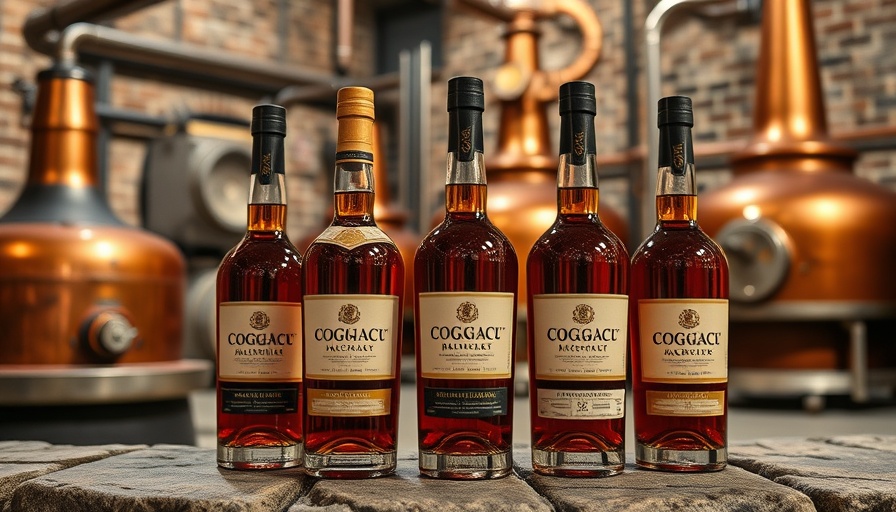
China's Decision to Spare Major Cognac Makers: A Strategic Move
In a surprising turn of events, China has decided to exempt significant cognac brands from imposing hefty dumping duties on European Union brandy imports. This pivotal choice comes at a time when tensions between the EU and China have escalated, as China aims to navigate its complex trade relationships while supporting its domestic market.
The Implications of EU Brandy Duties
Starting July 5, China intended to impose duties of up to 349% on EU brandy due to allegations that these products were sold at improperly low prices, potentially undercutting local producers. However, many feared that such tariffs could adversely affect bilateral trade relations and result in a negative impact on the prices of cognac, a spirit prized by many Chinese consumers for its association with luxury and prestige.
Why Cognac Brands Are Exempt
The exemption for major cognac makers underlines a strategic decision for China, as cognac constitutes a significant segment of the imported spirit market, especially among affluent consumers. This exemption not only bolsters brand loyalty among high-end buyers but also protects the domestic economy from volatility in luxury goods pricing.
The Broader Economic Significance
China's relationship with French cognac brands intersects significantly with investment trends observed globally. Cognac imports have seen a steady rise, which aligns with the current investment strategy seen in the luxury goods sector. Cognac is not just a beverage; it represents a cultural symbol and is often seen as an investment by affluent consumers. Just as many investors look at art or high-end real estate as a way to store value, cognac is becoming an alternative investment in luxury assets.
Lessons for Investors: Understanding Market Dynamics
As investors watch these developments unfold, it offers a vital lesson on understanding market dynamics. The luxury goods sector, particularly spirits like cognac, can serve as an interesting case study for those looking to diversify their portfolios. With international trade policies constantly evolving, understanding the implications of international relations on market trends is crucial for making informed investment decisions.
Risk Management and Portfolio Diversification
For investors keen on protecting their assets amid fluctuating economic climates, cognac and other luxury goods signify how to approach risk management and portfolio diversification. Investors should consider including alternative investments, such as fine wines or spirits, within their broader investment strategy to hedge against market volatility.
The Future of Trading: Navigating Tariffs and International Relations
Furthermore, this decision by China illustrates the delicate interplay between international trade policies and market stability. As duties rise and fall, the smart investor will evaluate how such shifts in global trade impact not only luxury goods but sectors including real estate, high-end commodities, and emerging markets.
Final Thoughts
The cognac exemption is not simply about protecting a few brands; it symbolizes China's broader approach towards international relations and trade policy. For consumers and investors alike, the changes signal potential opportunities and the importance of navigating these waters with care and foresight.
 Add Row
Add Row  Add
Add 



Write A Comment